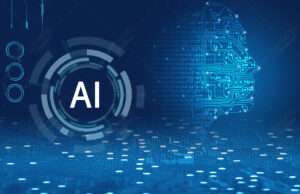Introduction

What is the quantum revolution?
Imagine a world where computers operate on an entirely different level, solving problems that seem impossible to traditional machines. This world is not a distant fantasy but rather a potential reality through the advent of quantum computing. In this article, we will delve into the fascinating realm of quantum mechanics and explore how it is revolutionizing the future of computing.
Understanding Quantum Mechanics
The first quantum revolution, at its essence, is a field of physics that delves into the intricate manners of matter and energy at the tiniest levels. It dares to defy our conventional intuitions by introducing extraordinary concepts like superposition and entanglement. Superposition allows particles to exist in multiple states simultaneously, while entanglement creates a mysterious connection between particles regardless of distance.
The Basics of Quantum Revolution Computing
Quantum computing leverages the fundamental principles of quantum mechanics to execute computations in a profoundly distinct manner compared to classical computers. While classical bits can represent either a 0 or a 1, quantum bits or qubits can exist in a superposition of both states. The remarkable parallelism inherent in quantum computers empowers them to handle immense quantities of information simultaneously, resulting in exponential boosts in computational speed.
Quantum Computing Algorithms
To fully utilize the power of quantum computing, specialized algorithms are required. Shor’s algorithm, for example, demonstrates the potential of quantum computers to factor large numbers exponentially faster than classical algorithms. Grover’s algorithm, on the other hand, offers a speedup in searching unstructured databases. These breakthrough algorithms pave the way for new possibilities in cryptography, optimization, and data analysis.
Quantum Revolution Supremacy and Breakthroughs
Quantum supremacy refers to the point at which a quantum computer can perform a calculation that surpasses the capabilities of even the most powerful classical supercomputers. In 2019, Google claimed to have achieved quantum supremacy by demonstrating a task that would take a classical computer thousands of years to complete but was solved by their quantum processor in minutes. Such breakthroughs mark significant milestones in the quantum revolution.
Applications of Quantum Computing
The possibilities for utilizing quantum computing extend across a wide range of disciplines. In material science, quantum simulations can help design new materials with exceptional properties. Pharmaceutical research can benefit from accelerated drug discovery processes, optimizing molecular simulations. Financial institutions can leverage quantum algorithms for risk analysis and portfolio optimization. Weather forecasting, machine learning, and supply chain optimization are just a few other areas where quantum computing shows promise.
Quantum Computing Challenges
While quantum computing holds immense potential, it also faces several challenges. Quantum systems are prone to errors due to environmental disturbances and inherent imperfections. Building stable and error-corrected quantum computers is a major obstacle. Additionally, the need for extremely low temperatures and complex control mechanisms poses practical challenges in scaling up quantum systems.
Quantum Computing and the Future of Technology
The future of technology will undoubtedly be shaped by the advancements in quantum computing. As quantum computers become more capable, they have the potential to revolutionize industries such as finance, healthcare, logistics, and manufacturing. This paradigm shift in computing power will unlock new solutions to complex problems and transform the way we approach scientific research and technological innovation.
Quantum Computing in Various Industries
In the finance industry, quantum computing can enhance risk analysis models, optimize trading strategies, and enable faster portfolio management. Healthcare can benefit from quantum computing in drug discovery, genomics research, and personalized medicine. Logistics and supply chain management can leverage quantum algorithms for route optimization, inventory management, and demand forecasting. Manufacturing can improve production processes and optimize supply chains for increased efficiency.
Quantum Revolution Impact on Cybersecurity
Quantum computing poses a unique challenge to traditional encryption methods. Shor’s algorithm, for instance, can break widely used public-key cryptographic algorithms, rendering sensitive information vulnerable. This necessitates the development of quantum-resistant encryption techniques, known as post-quantum cryptography. Researchers and organizations are actively working on developing and standardizing such algorithms to ensure data security in the post-quantum era.
Ethical Implications of Quantum Computing
As with any groundbreaking technology, quantum computing brings forth ethical considerations. The immense computational power it offers raises concerns about potential misuses, such as breaking encryption for malicious purposes or creating powerful optimization algorithms that could disrupt economies. Ethical frameworks and regulations must be established to ensure the responsible development and usage of quantum computing technologies.
Quantum Computing and Artificial Intelligence
The marriage of quantum computing and artificial intelligence (AI) holds great promise. Quantum machine learning algorithms have the potential to accelerate pattern recognition, improve optimization algorithms, and enhance decision-making processes. Quantum AI may unlock new frontiers in understanding complex systems, advancing natural language processing, and revolutionizing robotics.
The Road Ahead for Quantum Computing
While quantum computing has made significant strides, there is still much progress to be made. Research and development efforts are focused on improving qubit stability, developing error correction techniques, and increasing the scalability of quantum systems. As these challenges are overcome, we can expect quantum computers to become more accessible and practical for a wider range of applications.
Conclusion
The quantum revolution is well underway, with quantum mechanics and quantum computing poised to reshape the future of technology. The potential for exponential computational speedups and breakthrough applications across industries is both awe-inspiring and transformative. However, as we embark on this exciting journey, we must navigate the challenges and ethical considerations that arise, ensuring the responsible development and utilization of this revolutionary technology.
FAQs
1. In what ways does quantum computing distinguish itself from classical computing systems?
Quantum computing differs from classical computing by harnessing quantum mechanics principles, enabling computations to be performed in parallel using qubits instead of classical bits.
2. What are the diverse areas where quantum computing holds promise for potential applications?
Quantum computing has applications in various fields, including material science, pharmaceutical research, finance, logistics, machine learning, and cybersecurity, to name a few.
3. What is quantum supremacy?
Quantum supremacy refers to the point where a quantum computer can solve a problem that is practically infeasible for even the most powerful classical computers to solve within a reasonable timeframe.
4. What are the challenges facing quantum computing?
Quantum computing faces challenges such as qubit stability, error correction, scalability, and the need for low temperatures and complex control mechanisms.
5. How will quantum computing impact cybersecurity?
Quantum computing poses a challenge to traditional encryption methods, necessitating the development of post-quantum cryptographic techniques to ensure data security in the face of quantum attacks.



